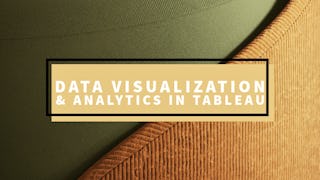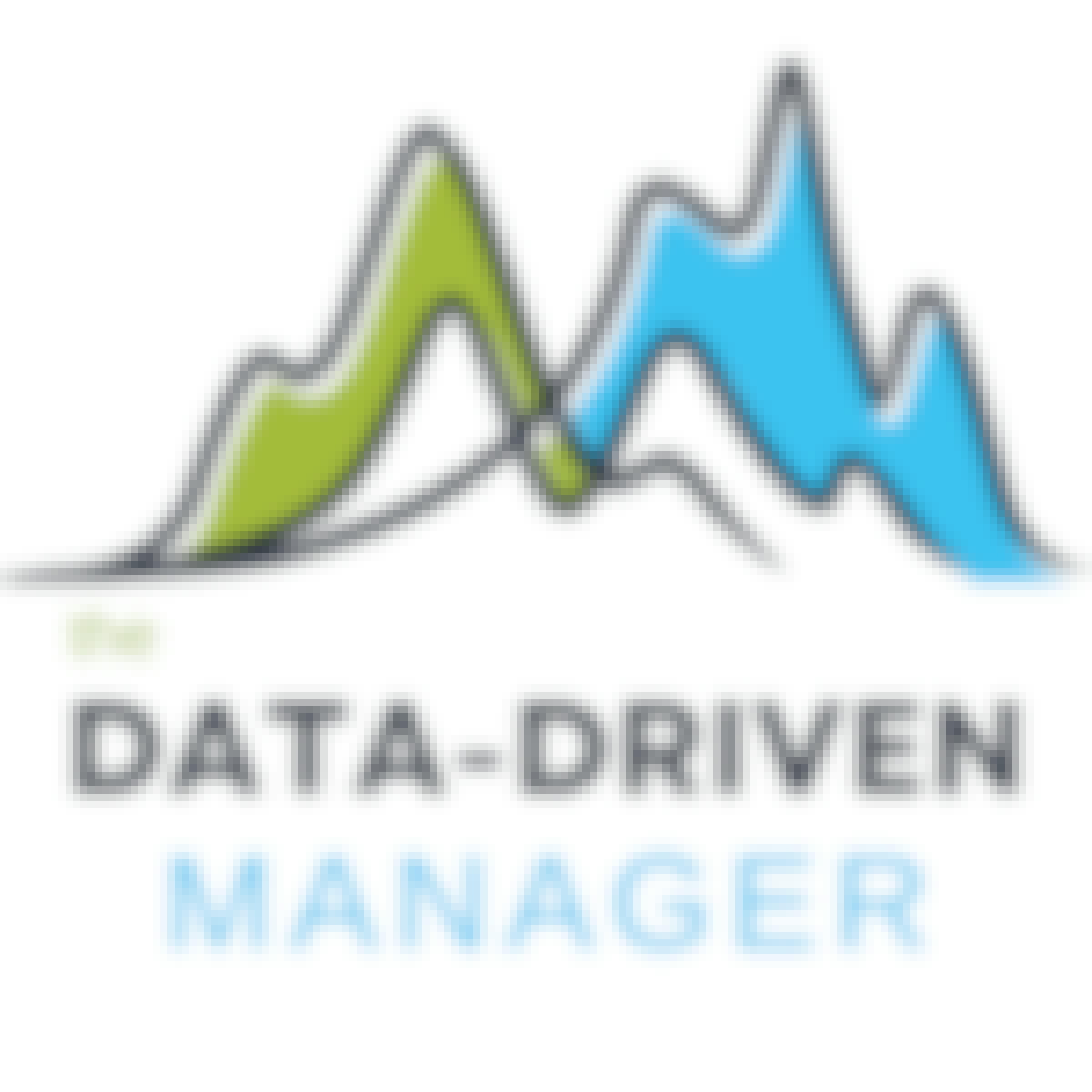- Browse
- Bayesian Statistics
Bayesian Statistics Courses
Bayesian statistics courses can help you learn probability distributions, Bayesian inference, and statistical modeling. You can build skills in hypothesis testing, predictive analytics, and decision-making under uncertainty. Many courses introduce tools like R, Python, and Stan, which are commonly used for implementing Bayesian methods and analyzing data. You'll also explore concepts like Markov Chain Monte Carlo (MCMC) techniques and Bayesian networks, equipping you with practical knowledge for data-driven decision-making in various fields.
Popular Bayesian Statistics Courses and Certifications
 Status: PreviewPreviewF
Status: PreviewPreviewFFred Hutchinson Cancer Center
Skills you'll gain: Collaborative Software, GitHub, Laboratory Reports, Technical Writing, Version Control, Document Management, Technical Documentation, Typography
4.3·Rating, 4.3 out of 5 stars140 reviewsBeginner · Course · 1 - 4 Weeks
 Status: PreviewPreviewÉ
Status: PreviewPreviewÉÉcole Polytechnique Fédérale de Lausanne
Skills you'll gain: Spatial Analysis, Geographic Information Systems, Geospatial Mapping, Spatial Data Analysis, Augmented Reality, Data Visualization Software, Data Mapping, Color Theory, Database Management
4.3·Rating, 4.3 out of 5 stars43 reviewsBeginner · Course · 1 - 3 Months
 Status: Free TrialFree TrialF
Status: Free TrialFree TrialFFundação Instituto de Administração
Skills you'll gain: Customer Success Management, Relationship Building, Customer experience strategy (CX), Customer Retention, Agile Methodology, Customer Engagement, Customer Data Management, Customer Relationship Management, Consultative Approaches, Customer Insights, Market Analysis, Software As A Service, Business Modeling, Organizational Structure, Business Relationship Management, Target Audience, Value Propositions, Solution Delivery, Business Analysis, Web Analytics
4.8·Rating, 4.8 out of 5 stars58 reviewsBeginner · Specialization · 3 - 6 Months
 Status: Free TrialFree TrialU
Status: Free TrialFree TrialUUniversity of Colorado Boulder
Skills you'll gain: Dashboard, Data Visualization Software, Tableau Software, Data Visualization, Interactive Data Visualization, Data Storytelling, Data Presentation, Data Analysis, Geospatial Mapping, Histogram, Advanced Analytics, Spatial Analysis, Scatter Plots, Data Science, Data Manipulation, Data Import/Export, Business Analytics, Marketing Analytics, Analytics, Forecasting
4.9·Rating, 4.9 out of 5 stars8 reviewsBeginner · Specialization · 1 - 3 Months
 Status: Free TrialFree TrialY
Status: Free TrialFree TrialYYunus Social Business Fund Bengaluru
Skills you'll gain: Business Valuation, Return On Investment, Finance, Financial Analysis, Portfolio Risk, Cost Benefit Analysis, Capital Budgeting, Risk Analysis, Financial Modeling, Social Impact, Corporate Finance, Cash Flows, Decision Making, Probability & Statistics
4.5·Rating, 4.5 out of 5 stars10 reviewsBeginner · Course · 1 - 3 Months
 Status: PreviewPreviewC
Status: PreviewPreviewCCoursera
Skills you'll gain: Responsible AI, Data Ethics, Microsoft Copilot, Generative AI, AI Enablement, Training and Development, ChatGPT, Productivity Software, Training Programs, Prompt Engineering, Learning Management Systems, Innovation, Case Studies, Leadership Development, Automation
Intermediate · Course · 1 - 4 Weeks
 Status: Free TrialFree TrialU
Status: Free TrialFree TrialUUniversidad de los Andes
Skills you'll gain: Spatial Analysis, NoSQL, Spatial Data Analysis, Geospatial Mapping, Geographic Information Systems, Public Cloud, Big Data, MongoDB, Data Infrastructure, Apache Hadoop, Apache Spark, Distributed Computing, Data Architecture, Cloud Platforms, Cloud Services, Data Processing, Database Systems, Scalability, Environmental Monitoring, Climate Change Programs
4.3·Rating, 4.3 out of 5 stars11 reviewsBeginner · Specialization · 3 - 6 Months
 Status: Free TrialFree TrialU
Status: Free TrialFree TrialUUniversity of Colorado Boulder
Skills you'll gain: Sampling (Statistics), Estimation, Risk Analysis, Statistical Methods, Statistical Software, Return On Investment, Statistical Analysis, Sample Size Determination, R (Software), Data Analysis, Business Risk Management, Probability & Statistics, Statistical Inference, Project Estimation, Business Analysis
Build toward a degree
Intermediate · Course · 1 - 3 Months
 Status: Free TrialFree TrialU
Status: Free TrialFree TrialUUniversity of Michigan
Skills you'll gain: Exploratory Data Analysis, Rmarkdown, R (Software), Tidyverse (R Package), Statistical Visualization, Data Visualization, Data Visualization Software, R Programming, Ggplot2, Data Wrangling, Scatter Plots, Data Manipulation, Histogram, Scripting, Package and Software Management, Data Import/Export
5·Rating, 5 out of 5 stars7 reviewsBeginner · Course · 1 - 4 Weeks

Skills you'll gain: Data Storytelling, Customer Analysis, Data Integration, Interactive Data Visualization, Dashboard, Data Visualization, Data Analysis, Customer Insights, Data-Driven Decision-Making, Data Analysis Software, Exploratory Data Analysis, Presentations, Analytics, Technical Communication, Data Visualization Software, Data Import/Export
4.1·Rating, 4.1 out of 5 stars15 reviewsIntermediate · Guided Project · Less Than 2 Hours

Skills you'll gain: Model Evaluation, Responsible AI, Exploratory Data Analysis, Predictive Modeling, Data Visualization, Machine Learning, Policy Analysis, Statistical Methods, Data Science, Data Ethics, Development Environment, Software Engineering
4.5·Rating, 4.5 out of 5 stars20 reviewsBeginner · Guided Project · Less Than 2 Hours
 Status: PreviewPreviewU
Status: PreviewPreviewUUniversity of Toronto
Skills you'll gain: Scientific Visualization, Data Visualization Software, Statistical Visualization, Interactive Data Visualization, Bioinformatics, Ggplot2, Visualization (Computer Graphics), R (Software), Dimensionality Reduction, Scatter Plots, R Programming, Network Analysis, Exploratory Data Analysis, Heat Maps, Molecular Biology, Design Thinking
4.8·Rating, 4.8 out of 5 stars24 reviewsIntermediate · Course · 1 - 3 Months
In summary, here are 10 of our most popular bayesian statistics courses
- Write Smarter with Overleaf and LaTeX: Fred Hutchinson Cancer Center
- Systèmes d’Information Géographique - Partie 2: École Polytechnique Fédérale de Lausanne
- Fundamentos da Gestão do Sucesso do Cliente: Fundação Instituto de Administração
- Data Visualization & Analytics in Tableau: University of Colorado Boulder
- Risk, Return and Valuation: Yunus Social Business Fund Bengaluru
- GenAI for Learning and Development: Coursera
- Plataformas para procesar datos no tradicionales: Universidad de los Andes
- Data Acquisition, Risk, and Estimation: University of Colorado Boulder
- Arranging and Visualizing Data in R : University of Michigan
- Qlik Sense for Beginners: Analyze and Visualize Data: Coursera










